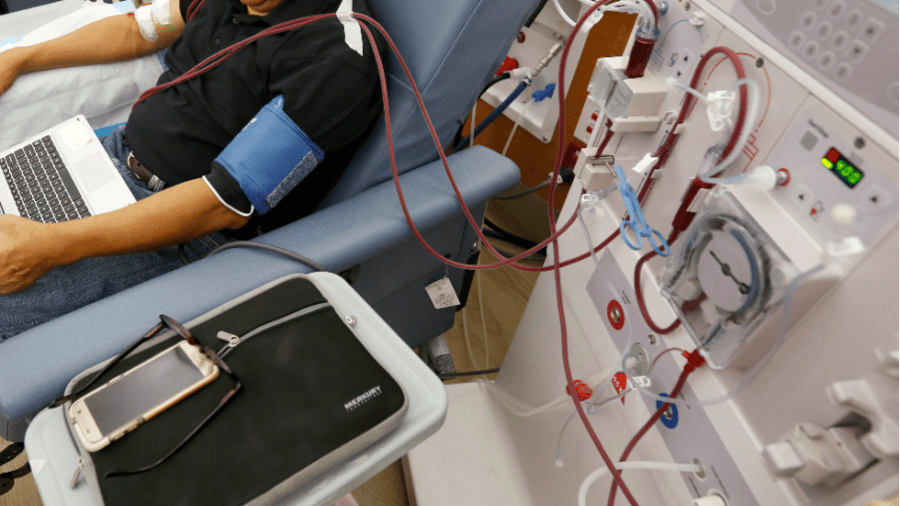
Four years ago, my father passed away from kidney failure after a multi-year battle. When he was first diagnosed with chronic kidney disease (CKD), it was toward the end of a long career as an eye surgeon. I had worked in several leadership roles at the U.S. Health and Human Services and at the U.S. affiliate of Eli Lilly. Despite our sophistication in health care, we found that navigating the system and determining our treatment options to be incredibly complex and challenging.
That arduous shared experience made it clear to me that kidney care in America was broken. It was a prime motivator of my efforts when I became secretary of Health and Human Services years later to get the Advancing American Kidney Health (AAKH) initiative operational in 2020. The bipartisan AAKH was the first major kidney disease treatment reform in 50 years, and it set a course for better outcomes and lower costs of care. It was an important beginning on a long road to care transformation.
Unfortunately, our kidney care system remains broken, leading to massive human and financial cost implications. The status quo in kidney care has failed individuals with CKD for too long amid soaring costs and sub-optimal health outcomes. Misaligned incentives and inefficiencies hamper prevention and early detection efforts, doing little to stop or slow the progression of CKD into kidney failure.
Today, more than 37 million people in the U.S. suffer from CKD and an astounding 90 percent are unaware they have it. As many as 60 percent of people with late-stage kidney disease “crash” into the emergency room with failed kidneys, needing emergency dialysis to survive. Each crash leads to poorer outcomes and $50,000 in added costs. The consequence of this dysfunction results in far too many patients spending years on in-center dialysis.
The financial implications of our defective kidney care system are staggering. Medicare spends approximately $153 billion — more than 24 percent of its total spending — on patients with kidney disease each year.
For too long, the pay-for-service model of health care has persisted with a lack of innovation or change. We must as a country align provider incentives to reward prevention and early detection. In other words, if you want more transplantation then pay more for transplantation, and if you want a reduction in CKD progression then reward a reduction in CKD progression.
An effective alternative to the outdated and counterproductive fee-for-service system has emerged. Value-based care (VBC) aligns incentives with patient outcomes in a pay-for-performance arrangement, improving the quality and delivery of care while driving costs out of the system.
VBC’s emphasis on prevention, slowing progression, and 360-degree support enable treatment of the whole person, not just the disease. These new value-based arrangements use support and services such as care coordinators, nutritionists, behavioral health specialists, and pharmacists, along with providing additional support like transportation.
These efforts are resulting in fewer people “crashing” into the emergency room with kidney failure, increasing the chance of a preemptive transplant or a smooth transition to home dialysis where patients have more freedom to continue working and living their best lives. By focusing earlier on their disease progression, the patient receives better care at a reduced cost.
Implementation of VBC principles and programs is growing with more kidney doctors and companies supporting this important transition. There is ample evidence that it works, with metrics clearly indicating advantages to pay-for-performance in both outcomes and costs. Insurance companies are finding they can improve lives and save money at the same time. With effective examples of VBC programs available, now is the time to finally fix our flawed kidney care system.
The Centers for Medicare and Medicaid Service is helping lead the way with new pay-for-performance payment models for CKD and kidney failure — part of the new kidney health initiative that I launched as secretary and now continuing under the new administration. I am excited to see the results.
My dad was relatively fortunate. He got the care and support he needed to manage his condition, transition to home dialysis, and eventually receive a transplant that improved and prolonged his life. But those resources and that level of care need to be readily available for everyone. The plodding pace of change costs lives and continues to tax our entire health care system.
All who are responsible for the health of Americans and the health of our care delivery system must ignore party lines and short-term profits to put individuals with kidney disease at the center of what we do. More insurance companies must push these value-based approaches forward to make them work at scale. We can deliver better care and cost savings through a comprehensive and fully adopted pay-for-performance approach to kidney care.
Alex Azar served as the 24th Secretary of the U.S. Department of Health and Human Services (HHS) from 2018 to 2021. As a board member for Interwell Health, a leading value-based kidney care company, Azar continues to drive kidney care forward through various initiatives and his support of value-based policies and care models.














